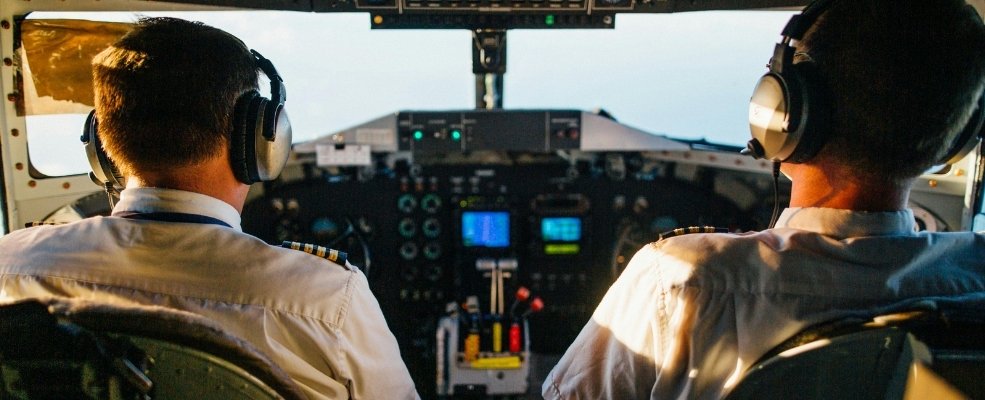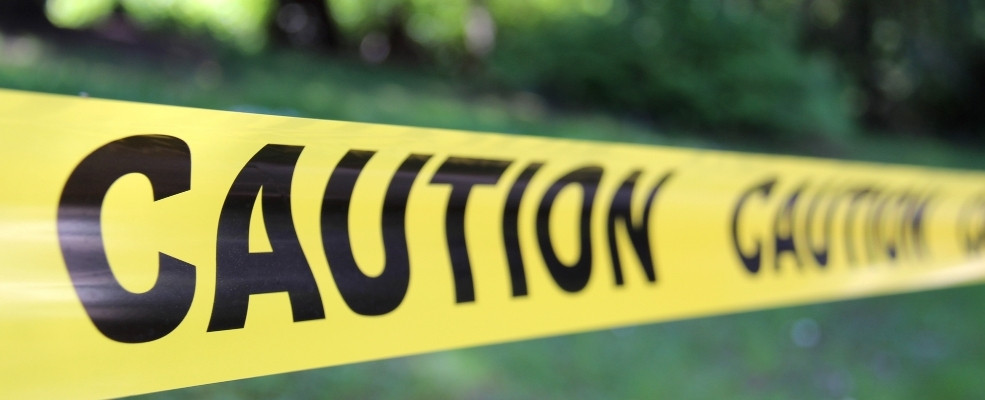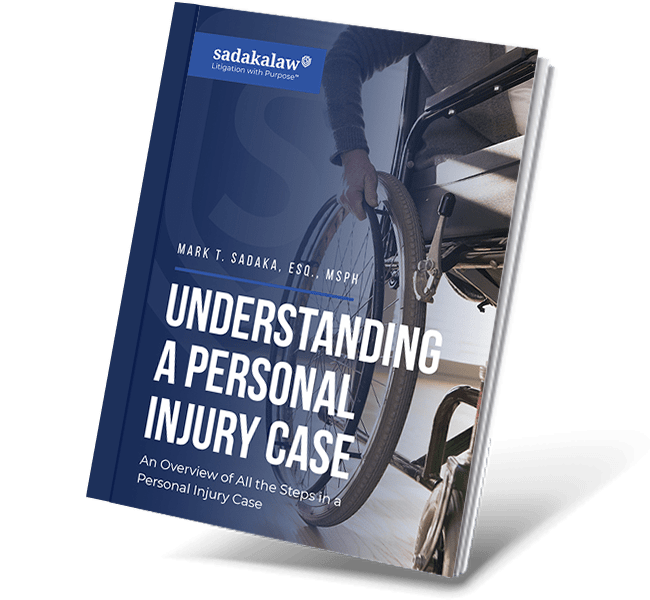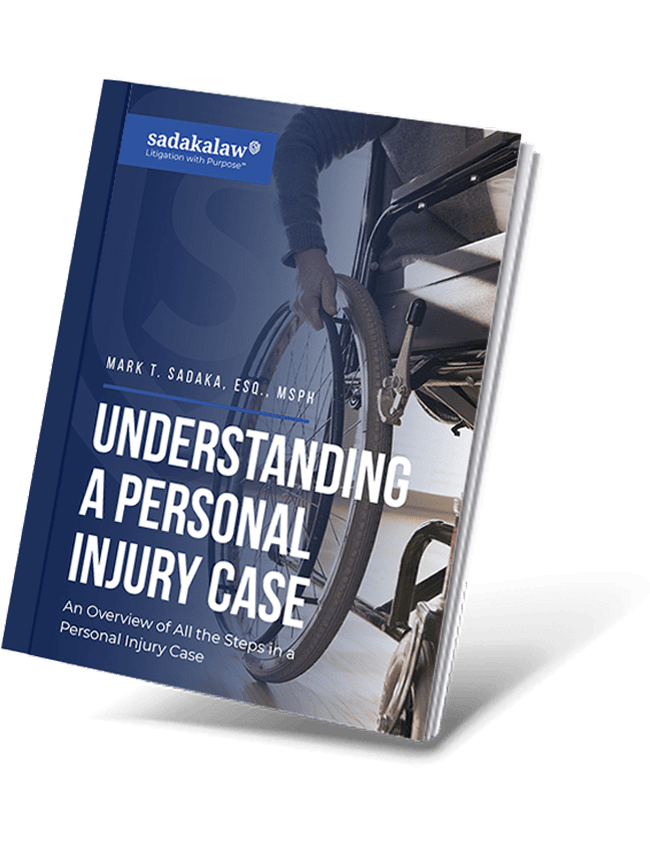We Understand What You’re Going Through
Aviation accidents are unlike any other tragedy because they happen suddenly and involve massive corporations. Families must face complex legal battles while grieving devastating losses. You didn’t choose this accident, but you can choose your advocate.
We are a science and law hybrid that understands the context of your personal injury case. Mark Sadaka’s Master of Science in Public Health degree in toxicology and risk assessment, combined with decades of fighting powerful corporations, gives you the specialized expertise for aviation cases.
What to Do Immediately After an Airplane Accident

Time matters in aviation cases. Airlines and manufacturers move quickly to protect themselves. You need to act just as fast to protect your rights.
If You Survived the Accident
Seek medical attention immediately, even if injuries seem minor. Adrenaline can mask serious trauma that becomes apparent later. Document everything you can remember and photograph any visible injuries or damaged personal items.
Do not give statements to airline representatives or insurance adjusters. They will use your words against you later. Preserve all evidence, including clothing, personal items, boarding passes, and tickets. Contact an experienced aviation attorney as soon as possible because evidence disappears quickly at crash sites.
Remember: Time works against you. Witness memories fade and physical evidence gets destroyed. Legal filing deadlines approach fast.
If You Lost a Family Member
Your family needs someone to coordinate essential actions. Designate one family spokesperson to avoid overwhelming contacts with multiple people. This person should gather your loved one’s employment history, medical records, and plans. They should also document who depended on your family member for financial support.
Avoid quick settlement offers. Airlines often offer inadequate payments, hoping families will accept fast settlements during their grief. Understanding your legal rights is crucial because wrongful death claims have different rules from survival claims.
What Your Family Coordinator Should Do
Your designated person should handle all legal and insurance calls while keeping the family informed on big decisions. They run family meetings and deal with the media while working directly with your attorney.
Recent Aviation Accidents Show the Ongoing Risks
Aviation accidents continue to devastate families across the country. Recent incidents remind us that when these tragedies occur, the results are catastrophic.
2024-2025 Major Aviation Incidents
January 2025: Reagan National Airport collision killed 67 people when two aircraft collided, marking the first major U.S. commercial aviation disaster in 16 years.
2024 Singapore Airlines Flight 321: Severe turbulence killed one passenger and injured at least 30 others on a Boeing 777 flight from London to Singapore.
2024 Haneda Airport Collision: A Japan Airlines Airbus A350 collided with a coast guard aircraft during landing, destroying both planes but successfully evacuating 379 passengers.
The Statistics Behind Aviation Safety
According to Hearst Television’s analysis of NTSB data, aviation accidents averaged 28 air carrier incidents annually over the past 20 years. The numbers vary dramatically year to year. 2020 saw only 15 accidents (the lowest recorded), while 2019 had 40 accidents (the highest recent year). Through early 2025, aviation incidents continue to occur at rates consistent with historical patterns.
While flying remains statistically the safest form of travel at 0.01 deaths per 100 million miles, these numbers mean nothing to families facing devastating losses.
Understanding What Causes Aviation Accidents

Aviation accidents happen for complex reasons. Understanding these causes helps determine who bears responsibility for your injuries or loss.
Pilot Error Causes Half of Fatal Accidents
The Pilot Institute reports that pilot error causes 69% of fatal aviation accidents. These errors include misreading instruments at critical moments and making poor weather decisions. Airlines sometimes provide inadequate training to save costs. Medical emergencies can incapacitate pilots during flight. Sometimes pilots fly perfectly good aircraft directly into terrain.
Important: Pilot error doesn’t end your case. Airlines can be also held responsible for hiring, training, and supervising their pilots.
Mechanical Failures Also Account for Accidents
When aircraft systems fail, manufacturers and maintenance companies bear responsibility. According to AOPA Air Safety Institute data, mechanical failures account for approximately 11-13% of fatal aviation accidents, though this varies by aircraft type and operation. Design defects involve flawed engineering that creates dangerous conditions. Manufacturing problems include faulty parts that fail during critical moments. Maintenance negligence occurs when contractors skip required inspections or repairs, while component supplier failures involve defective parts from third-party manufacturers.
Environmental and Human Factors
Other causes include severe weather, bird strikes, air traffic control errors, and inadequate crew training. Turbulence injuries represent a growing concern in aviation safety, especially with climate change increasing severe turbulence incidents. Passengers and crew can suffer serious injuries during unexpected turbulence events when not properly secured. Each factor requires specific legal expertise to prove negligence.
Commercial vs. Private Aircraft Accidents – Why It Matters
The type of aircraft involved dramatically affects your legal rights and potential compensation.
Commercial Aviation Cases
Airlines face the strictest safety standards. FAA regulations mandate rigorous maintenance and training protocols. Commercial cases typically involve multiple defendants, including airlines and maintenance companies, who may all bear responsibility. International treaties like the Warsaw and Montreal Conventions affect international flights, while airlines must provide family assistance services after disasters.
Private and Charter Aircraft Cases
Different rules create different challenges. Private aviation has less regulatory oversight than commercial aviation. Private owners may lack adequate insurance coverage, while different inspection requirements apply compared to commercial aircraft. Insurance complexity varies dramatically between operators.
Our Investigation Process – Uncovering the Truth

Government investigations focus on preventing future accidents. We investigate to prove negligence and maximize your compensation.
Technical Evidence We Analyze
Our team examines complex aviation evidence starting with flight data recorders and their “black box” information about aircraft performance. We analyze cockpit voice recordings and air traffic control communications. Maintenance records show inspection logs and repair histories. Pilot qualifications reveal training gaps and medical issues. Weather data completes our technical review.
Mark Sadaka’s scientific background allows us to understand technical evidence that other attorneys might miss.
Why Independent Investigation Matters
The NTSB and FAA have different goals than you do. Their mission focuses on improving aviation safety for the future, while your needs center on holding responsible parties accountable and securing fair compensation. Time pressure works against victims because evidence disappears while government investigations take years. Corporate influence also affects the process since airlines and manufacturers control much early evidence.
Aviation Accident Compensation in New Jersey
New Jersey’s proximity to major airports creates unique legal opportunities for aviation accident victims.
Types of Compensation Available
Economic damages cover financial losses:
- Medical expenses (immediate and ongoing treatment)
- Lost wages and future earning capacity
- Rehabilitation and therapy costs
- Death benefits and funeral expenses
Non-economic damages address personal suffering:
- Pain and suffering from injuries
- Loss of companionship and guidance
- Loss of life’s enjoyment
Special aviation considerations:
- International treaty limitations or benefits
- Punitive damages in gross negligence cases
- Family assistance and emergency expenses
New Jersey Legal Considerations
State law that affects your case:
- Wrongful death statutes – New Jersey law determines who can file claims
- Comparative negligence – How victim behavior affects compensation
- Statute of limitations – Strict deadlines for filing lawsuits
Frequently Asked Questions

How long do aviation accident cases take?
Aviation cases typically take 2-5 years because of their complexity. Multiple investigations and technical evidence create lengthy timelines when corporate defendants are involved. We work to resolve cases as quickly as possible while maximizing your recovery.
How do I know if I have a case?
Contact us immediately for a free evaluation. We analyze the accident circumstances, your injuries or losses, and potential defendants to determine if you have a viable claim
Can I sue if investigators find pilot error?
Yes. Airlines handle pilot hiring along with training and supervision. Even when pilots make errors, airlines may be liable for inadequate training or pressuring flights in dangerous conditions.
What if the accident happened over international waters?
International aviation accidents involve complex treaties and jurisdictional issues. The Montreal Convention often governs international flights. We analyze where you can file suit and which laws provide the best recovery.
How much does it cost to hire Sadaka Law?
Nothing upfront. We work on contingency, meaning you pay nothing unless we recover compensation for you. Our fee is a percentage of any settlement or verdict we obtain.
What if multiple parties are responsible?
Aviation accidents often involve several defendants: airlines, manufacturers, maintenance companies, and component suppliers. We identify all responsible parties to maximize your potential recovery from multiple sources. Aviation insurance claims can become complex when multiple insurers are involved, but our experience ensures you receive full compensation from all available coverage.
Take Action Now. Your Rights Are Time-Sensitive
Aviation accidents create unique legal challenges that require immediate action. Evidence disappears quickly. Corporate defendants mobilize teams of lawyers and investigators. Filing deadlines approach fast.
We offer free consultations with no obligation case evaluation. Our 24/7 availability recognizes that aviation accidents don’t follow business hours. We take immediate action to start protecting your rights today, and you pay nothing upfront because we work on contingency with no costs unless we win.
If you’ve been injured or lost a family member in an aviation accident, time is critical. Call Sadaka Law now to protect your rights and start your fight for justice.


